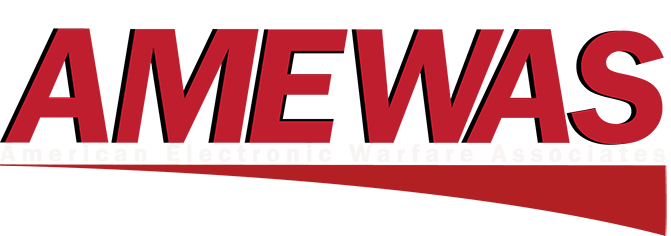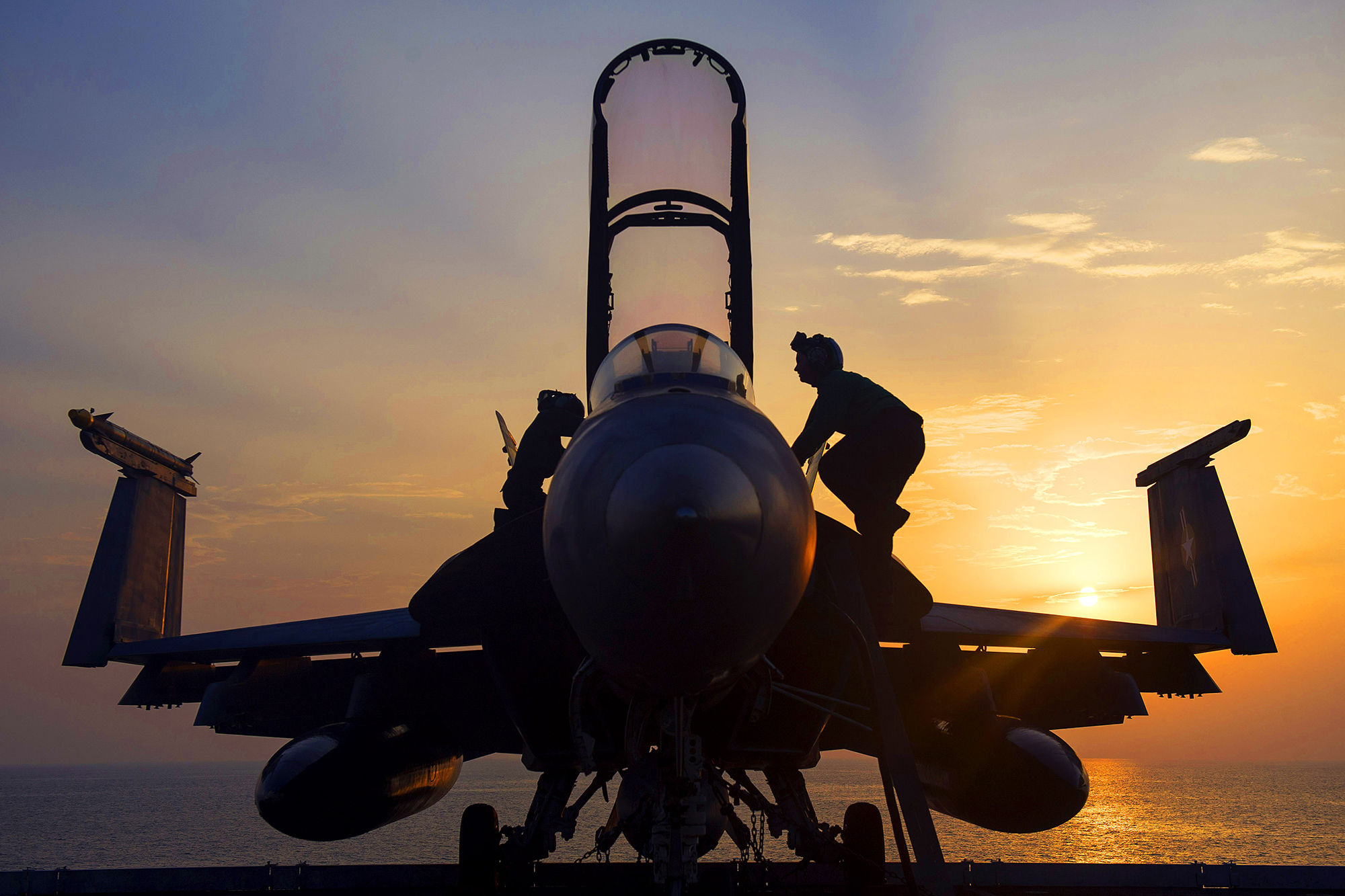Our Services
-
Operational Experience
A large percentage of AMEWAS employees are former warfighters spanning a range of specialties. Some of these subject matter experts have just as impressive advanced academic credentials to augment the skills needed to satisfy the customer’s requirements. From fundamental science, engineering specialties, and analysis of test data, AMEWAS supports the conceptualized system during integration into the fighting force. AMEWAS breadth of skills focuses on sensors but spans into software integration and the methods needed to evaluate every aspect. These considerations include cyber, electrical and environmental vulnerability and compatibility with respect to the overall performance requirements of system.
-
NAVAIR Airworthiness and Cybersafe Office (ACO) Support
AMEWAS, Inc. provides full airworthiness spectrum support for NAVAIR Airworthiness and Cybersafe Office (ACO). Our efforts encompass financial management, flight clearance facilitation, product development, editorial support, training, and Electronic Flight Clearance (eFC) workflow and mobile application development. We support the warfighter via Permanent Flight Clearances Products (NATOPS and NATIP), and Interim Flight Clearances (IFCs) that are critical to Navy and Marine Corps aviation. We are developing the framework for an end-to-end Change Request (CR) workflow system that will improve turn-around time and speed to the fleet. We are leading the innovation of a paperless cockpit through the design and development of an eFC mobile application that will provide responsive, reliable information for our aircrews on mobile devices at the touch of a button.
-
Test Experience
We have been integral to the testing process of electronic warfare (EW) and signal intelligence (SIGINT) systems since the early 1980's as test developers, engineers, and test facility solutions/service providers. Our experience ranges from signal processor testing to reference data (library) correlation and identification on individual electronic warfare (EW) and signal intelligence (SIGINT) sensor systems. We have provided systems integration, technical evaluation, test planning, and execution support for several Navy programs.
-
Training Experience
Our staff has developed conventional, computer assisted, and computer-based technical training courses which focused on Signals Intelligence/Exploitation, Intelligence Information Processing, Correlation and Reporting, Electronic Warfare Planning and Execution, Command and Control (C2) and Information Warfare, Military System Operations (Hardware, Software, Man-Machine Interface, and Inter/Intra Operator Interaction). Our experience includes academic, technical, and war gaming instruction and participation at the Naval War College and in support of several joint, combined, and coalition games.
Our Other Services
-
ADP/Computer Solutions
We also offer automated data process (ADP) and office automation solutions for Windows, Mac and Red Hat Enterprise Linux platforms. We have experience in and support many legacy platforms including DOS, HP-UX, Solaris, O/S-2, Ultrix and Windows 95/NT. Our staff supports everything from architecture design, platform and application selection to custom integration and interfacing solutions. We continue to provide ACETEF with software engineering, applications programming, interface and integration design and programming, and systems administration support.
-
Analytical Experience
Our staff has provided DoD and several of its weapon system contractors with analytical products supporting Cost and Operational Effectiveness Analyses (COEAs), Cost and Operational Performance Tradeoffs (COPTs) and Designs of Experiments (DOEs).
-
Reactive Simulation
Our understanding and experience in operational environments is multi-dimensional. We have years of experience integrating weapon systems, sensors, and humans to simulated environments in support of concept evaluations, installed system testing, and distributed simulation exercises. Assets integrated into the simulations include aircraft and aircraft systems, pilot crewstations, simulated C4ISR consoles, control center positions and deployed versions of Air Force and Navy C41 systems, including mission planning and rehearsal systems.
-
ACETEF Support
AMEWAS, Inc. provides system design, integration, technician and operator support to the Navy's air combat environment test and evaluation facility (ACETEF) facility and similar functions to some of its customers. Our efforts include the introduction and integral use of C4I systems (including mission planning systems) in a simulation-supported acquisition RDT&E process. We design, develop, and participate in operationally relevant and realistic real-time, mission level simulations supporting RDT&E projects and distributed simulation technology demonstrations.
Who We Are
Established in 1983, we are now celebrating over 40 years of excellence in providing quality products and services to the Department of Defense and are well suited to support multiple roles in the DoD’s research, development, test & evaluation (RDT&E) Environment. AMEWAS, Inc.'s core capabilities stem from an extensive, practical knowledge basis in electronic warfare (EW), synthetic warfare environments, software engineering and hardware integration that has been successfully applied to the science and technology (S&T), modeling and simulation (M&S) and T&E communities in the form of both services and products.
About Us
AMEWAS Inc. is located in beautiful St. Mary’s county just outside of the Naval Air Warfare Center, Aircraft Division (NAWCAD). Founded over 35 years ago the company actively supports the nation’s warfighters. The company supports the scientific, engineering, and testing of the full range of activities conducted at the base in support of the warfighter. Our services support the full spectrum of weapons development with particular emphasis on electronic warfare test and evaluation, both developmental and operational.





We staff over 250 on-site positions at Patuxent River Naval Air Station with professionals who augment our customers' organizations with highly desirable, specialized management and technical skills. We are proud of our ability to implement solutions in all of our customers' management and day-to-day operations. Our core capabilities stem from an extensive, practical knowledge basis in electronic warfare (EW), synthetic warfare environments, software engineering, and hardware integration.
AS9100 is an international standard containing requirements for establishing and maintaining a quality management system for the aerospace industry. AS9100 is used by organizations that design, develop, and produce aviation, space, and defense products. It encompasses the basic structure of ISO 9001 with the addition of specific aerospace industry best practices that provides the quality and reliability needs of the aerospace industry. The aerospace industry has high standards of customer satisfaction and strict laws imposed by regulatory authorities, therefore, the industry needs to produce and continuously improve products that meet these requirements. Unlike other quality management standards, which focus primarily on the final product, AS9100 focuses more on how the products are made. This standard establishes the elements that a quality management system must have in order for companies to consistently provide safe, quality products that are delivered on time.
CMMI for Development (DEV) provides guidance for process improvement across a project, department, or organization that will lead to improved quality lower costs, and on time delivery of products and services. CMMI-DEV guidance covers the life cycles of products from conception through delivery and maintenance. CMMI-DEV best practices are flexible enough to apply to a variety of industries, yet stable and consistent enough to provide a benchmark against which an organization can measure and compare itself. When a company is appraised at CMMI for Development, it means that the company has been trained, assessed, and appraised in the areas of product and service development. At maturity level 3, processes are well characterized and understood, and are described in standards, procedures, tools, and methods.
CMMI for Services (SVC) is used to improve management and service delivery processes in an organization that develops, manages, and delivers services. An appraisal at maturity level 3 indicates an organization is performing at a “defined” level. At this level, processes are well characterized and understood and are described in standards, procedures, tools, and methods. The organization’s set of standard processes, which is the basis for maturity level 3, is established and improved over time.
ISO 9001 is the international standard for creating a Quality Management Systems (QMS), published by ISO (the International Organization for Standardization). As an international standard, it is recognized as the basis for any company to create a system to ensure customer satisfaction and improvement. This world recognized standard provides direction for QMS requirements needed to be implemented for a company that wants to create policies, processes, and procedures necessary to provide products and services that meet customer and regulatory needs and improved customer satisfaction.
ISO/IEC 27001 is an international standard on how to manage information security. ... It details requirements for establishing, implementing, maintaining and continually improving an information security management system (ISMS) – the aim of which is to help organizations make the information assets they hold more secure. ISO/IEC 27001 formally specifies a management system that is intended to bring information security under explicit management control. Being a formal specification means that it mandates specific requirements. Organizations that claim to have adopted ISO/IEC 27001 can therefore be formally audited and certified compliant with the standard. ISO/IEC 27001 requires that management:
• Systematically examines the organization’s information security risks, taking account of the threats, vulnerabilities, and impacts.
• Designs and implements a coherent and comprehensive suite of information security controls and/or other forms of risk treatment (such as risk avoidance or risk transfer) to address those risks that are deemed unacceptable.
• Adopts an overarching management process to ensure that the information security controls continue to meet the organization’s information security needs on an on-going basis.
AMEWAS QA Scope
"The provisioning and management of services, aircraft capability improvements and engineering technical services with design and development, assembly and integration of military aircraft systems, modification kits, and related services in support of government and commercial customers and the information security relating to the management of those services."
AMEWAS QA Policy
"AMEWAS has established and maintains quality processes to meet and exceed the organization's contractual and business requirements and strategic objectives. AMEWAS strives to continually improve its processes and their effectiveness to ensure customer needs and expectations are always satisfied and the security of company information is maintained"
LET'S CHAT
We would love to hear from you and see how we can help
-
Maryland Corporate Office
44427 Airport Road, Suite 200, California, MD 20619
301-863-7102
-
Maryland Satellite Office
44423 Airport Road, Suite 200, California, MD 20619
240-237-8582
-
California Satellite Office
1620 5th Avenue, Suite 340, San Diego, CA 92101
858-524-6119
-
Florida Satellite Office
12001 Research Pkwy, Suite 400, Orlando Fl 32826
407-612-7740







